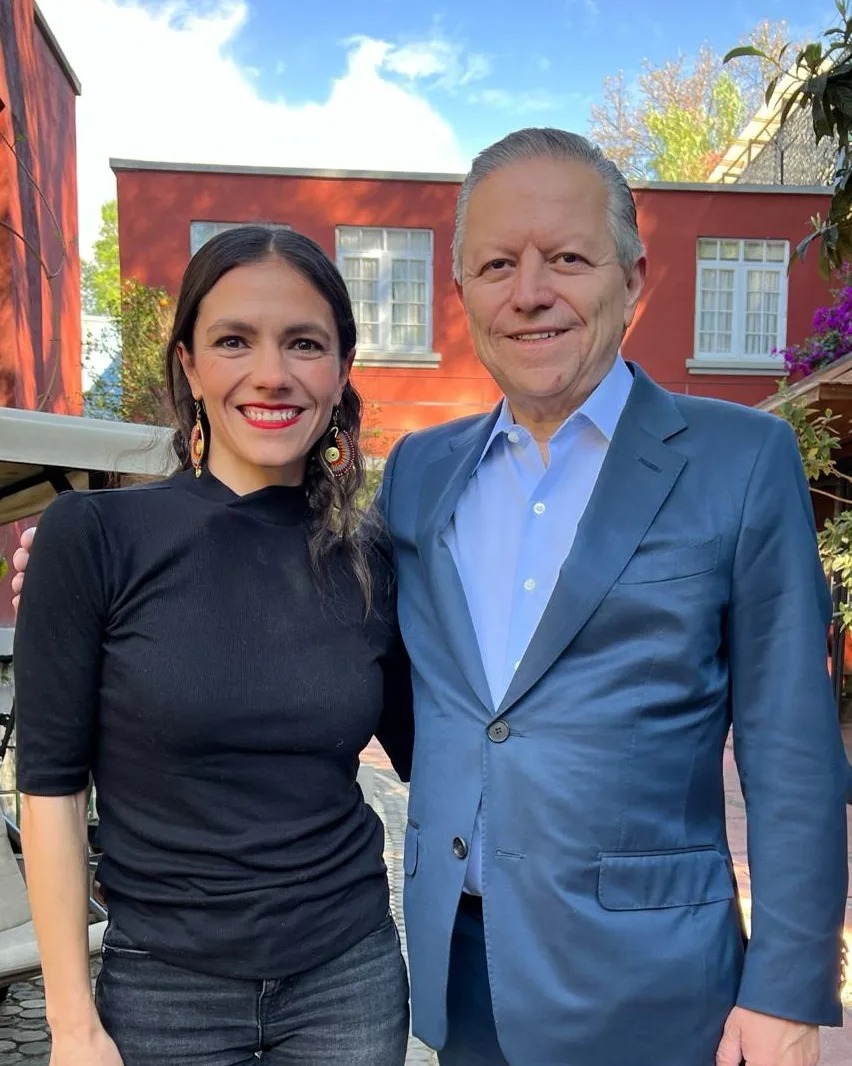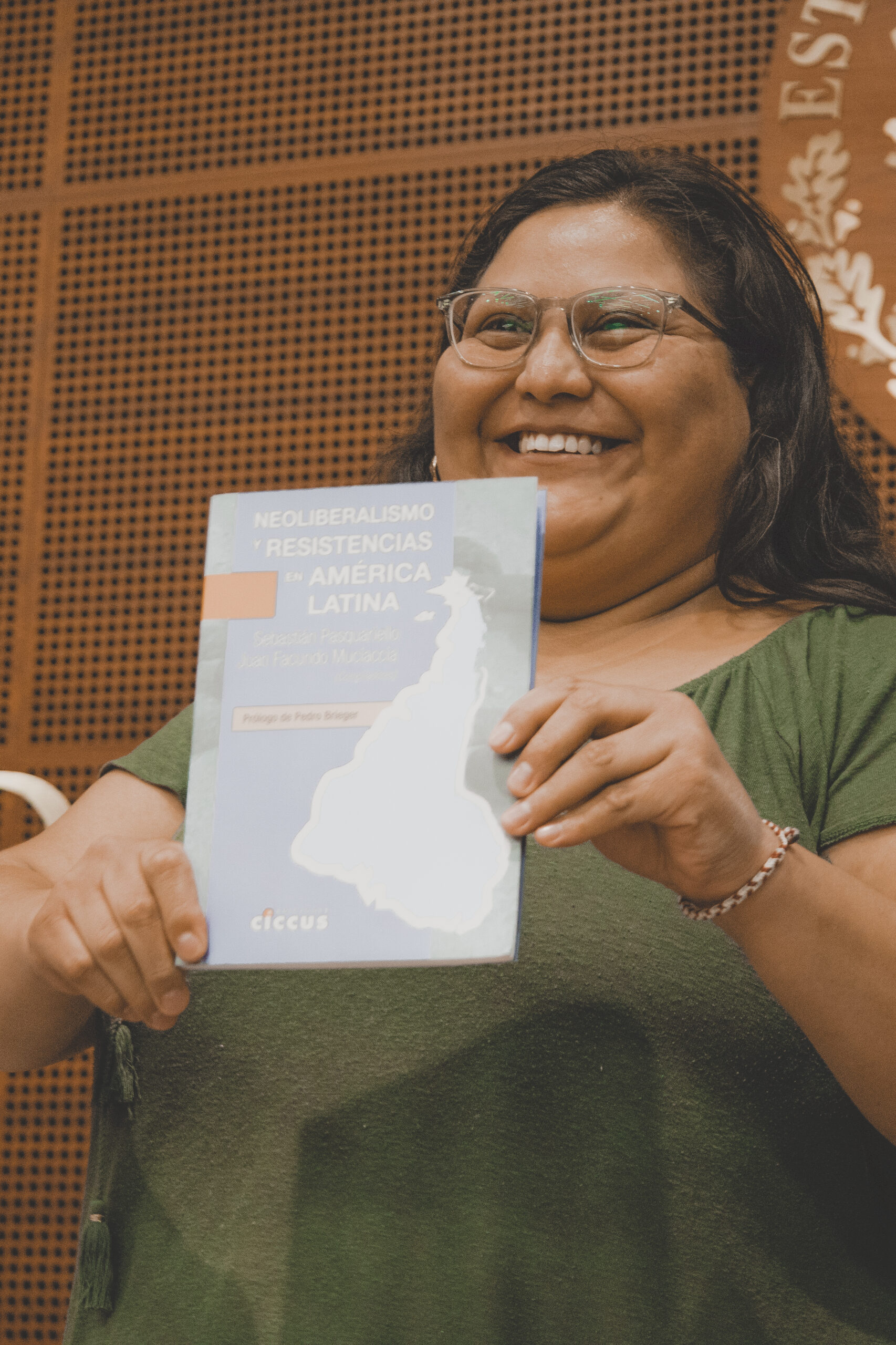It’s been said that humans have two ears and one mouth because we should listen twice as much as we talk.
Usually, politicians design their platforms with a few friends — and of course, some high-priced marketing consultants thrown in. When they come to our town, they tell us what they’ll do. They talk, we listen.
What if we talked and they listened?
Renata Turrent was appointed by Morena’s presidential candidate, Claudia Sheinbaum, to be on her 10-member pre-candidacy team to help develop her political platform. This was not business as usual.
First, like US president Abraham Lincoln, hers is a “team of rivals.” Three of the people she chose for her team vied with her for the Morena nomination.
Second, the team members came from diverse professional and social backgrounds. Several served in Congress; one was the Secretary of Economy under AMLO. Renata is an independent journalist. An actress was named as the cultural liaison.
The team members didn’t dream up ideas for Claudia’s platform out of their heads. Their role was to go out and gather as many ideas and concerns from as many people, organizations, and institutions as possible. Each set up their own meetings, but then they all met together to explore the convergences.
Claudia’s approach in the pre-campaign period gave Mexico a flavor of how she will work as president: she connected issues and sectors, united former rivals around the single goal of moving the 4th Transformation forward, and she practiced teamwork. But above all, she will make sure that before she uses her mouth, she’ll be all ears.

Renata Turrent is an expert in public policy, and is presently subdirector of the online magazine Sentido Común (Common Sense). She has collaborated with other public and private media. Renata is professor of economic development and an economics postgraduate at the National Autonomous University in Mexico City (UNAM).
Claudia Sheinbaum is Morena’s presidential candidate, and you were chosen to be one of ten people on her pre-candidacy team in November. What was your particular responsibility?
It was both exciting and humbling to be selected as one of the ten members of her team. I’m only 37! I admit that I was terrified. I felt a huge responsibility to Claudia and to the country to do a good job.
It was also scary because of the opposition from the right-wing. There were attacks on me and my family, and I have a 3-year-old.
I hadn’t worked with Claudia directly, but she noticed my work on the online news site Sentido Común and on social media, and she wanted a communications person who knew how to work all the channels. While most of the team members have academic backgrounds, she liked the everyday language I use to explain policy and politics.
My role was to be the Liaison with Academic Sectors to get their input on developing Claudia’s campaign platform. She wanted to hear not just from the big elite universities like UNAM or private universities, but also from, for example, teacher colleges in rural areas such as Ayotzinapa, where 43 students were disappeared in 2014. I solicited participation from young academics and visiting professors to bring in new voices.
Every week via zoom, I held “office hours,” an open space for people from educational institutions to bring their ideas; they were encouraged to write one-page proposals for Claudia’s platform.

What areas of expertise did the team members have, and did they meet together regularly?
We covered 12 areas, each coordinated by an expert. Issues included the transition to clean energy, Department of Justice reform to stop corruption and impunity (Arturo Zaldivar resigned from the Supreme Court to work for Claudia), cultural endeavors, and much more.
Because we met weekly as a team, we weren’t in silos but able to intersect across issues. For example, “women in science and technology” crossed both academic and women’s rights areas. We had a common calendar, and we had joint forums as well as sector-based ones — the teamwork was excellent.
Claudia instructed us to talk not only with each other, but to include people who disagree with us that we’ll need to have relationships with. Our role was to listen. For example, relating to energy, we sat down with the huge Spanish oil company Iberdrola that used to control our oil sector.
The bottom line for Claudia is that she’ll negotiate with those who disagree with Morena, but their wishes can’t conflict with the principles of the 4th transformation. Therefore, Iberdrola and Exxon had to agree that they will continue business under the authority of the state, and the state will be the entity driving the transition to clean energy. And they agreed — amazing!
Via YouTube, we held Dialogues for Transformation where the public heard what we were discussing and could give their own input. My role was also to communicate to the public everything that was discussed in the team’s forums and conversations.
An important change is in how Claudia’s government will measure success. For example, in the medical field, we will measure success by improvements in the public’s health.
The team was half women. Did Claudia, you, and the other women on the team influence how the work was done?
As a woman, you see the world differently. For one thing, you think about impacts on women and children. Last year the media asked, “Are we ready for a woman president?” That’s like asking, “Are you ready to be a parent?!” But with two women nominated from the two main party coalitions, at least we don’t have to bother with that question!
AMLO initiated the law that requires an equal number of men and women in Congress. His ministry is also half women. Under former president Peña-Nieto, only two out of nineteen ministers were women, and before AMLO’s presidency, only ten were ministers in the whole history of Mexico.
However, AMLO was not great in how he talks about women, or in directly addressing femicides. So, many feminists didn’t support him. We have feminist anarchists, academics, and NGO’s that even belong to the conservative party PAN.

But Morena is the only party that has feminists organized within it. And under AMLO, even PAN was influenced to practice greater gender equality as Morena’s initiatives began to change cultural attitudes toward women.
As mayor of Mexico City, Claudia reduced femicides by 50%. She created subsidies for children and older people, taking some of the burden of care off women, and she also intends to institute universal pre-school programs. So, we may well see an upsurge in support for her candidacy among women.
In the pre-candidacy period you gathered input, and in the official interim period (January 19 to February 29), the program was developed. Now what?
Even before the pre-campaign period began, Morena held 300 popular assemblies and produced a document outlining the ideological principles and programs for a Morena presidential platform. It’s the basis for the detailed program that will finally be unveiled to the public when the official campaign period begins on March 1. Candidates are not allowed to speak publicly about their program until that date.

AMLO is a hard act to follow. What about Claudia makes you believe she’ll be an effective president of Mexico?
A big reason for AMLO’s success was his mañaneras, his daily conversations informing the public about everything going on in the country. Claudia also held her own daily press conferences in Mexico City, and she’ll continue the mañanera tradition if she’s elected. But she has her own style and will develop her own communications strategies.
Claudia will face something difficult when she’s first elected. People love AMLO — he served as the nation’s moral compass. When he leaves office, it will be hard for people to let go — and they will grieve.
But I believe Claudia will overcome the obstacles and deepen the 4th transformation of Mexico. She is resolute, tested in politics, has a long history in the left, and as a scientist, bases her decisions on facts.
I’m prepared to do all I can to help her succeed, now, and for the next six years.

